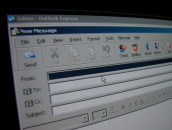Water as fuel: In Swat, a self-taught engineer has a solution to the energy crisis
Claims if his unique design is applied at a large-scale the power crisis can be resolved in three years.

Water as fuel: In Swat, a self-taught engineer has a solution to the energy crisis
After 20 years of research, Rehan Aziz Farooqi, has invented a unique power generator that runs solely on water, and, wait for it, the design can be used to allow any engine that runs on petrol, diesel or green gas to use water as fuel. He estimates that if the government applies his idea on a large-scale, Pakistan’s current electricity crisis can be resolved in three years time.
Explaining the workings of the power generator that he built from scratch, Farooqi said that water is first filled into a unit where it is split into hydrogen and oxygen gases through the process of electrolysis. The hydrogen gas is channelled to a reservoir, and then to an engine to be used as fuel to generate electricity.
“As water is abundantly available, electricity generated using this process will in fact be free of cost,” he exclaimed.
Farooqi claims to have spent more than Rs2 million on his invention and now requires the government’s permission and support to help him launch the product in the market. He has also asked the government to help him set up a research centre to find further applications for his invention.
“I have designed a method to power hydro turbines using this technology, which can go a long way in overcoming the electricity crisis within a few years,” he said. He also claimed to have drafted a method to generate electricity using the earth’s radiation.
Farooq said he does not want to hurry into launching the water-powered generator before making sure that the technology is a 100 per cent safe. Hydrogen is the lightest and most explosive gas, explained Farooq, and warned that even technical experts should proceed with caution if they are attempting to produce it in labs or their homes.
Apart from his major feats, Farooqi has initiated many other small research projects for children, in which he claims to prepare electricity using vegetables like tomatoes and potatoes. “Anything which has iron can generate electricity with a magnetic field. I can prove that practically if anyone wants,” he said. He added that he wants to teach people so that they can take up such projects themselves.
He urged the youth to put their creative abilities to work and help resolve the country’s issues.
Published in The Express Tribune, May 14th, 2012.



















COMMENTS
Comments are moderated and generally will be posted if they are on-topic and not abusive.
For more information, please see our Comments FAQ